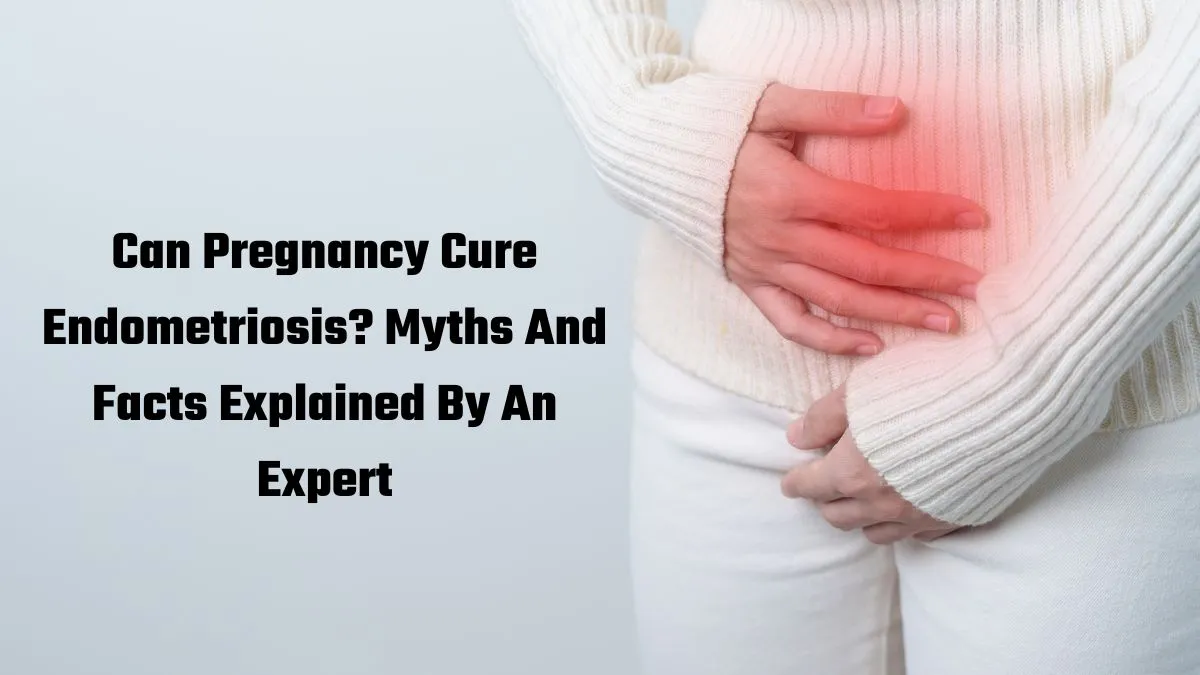- By Priyanka Munshi
- Wed, 26 Mar 2025 04:55 PM (IST)
- Source:JND
Endometriosis is a chronic gynecological condition in which tissue similar to the uterine lining grows outside the uterus, often depositing in the pelvis, ovaries, and even deeply infiltrating the pelvic tissues. This condition causes severe pelvic inflammation and adhesions, leading to intense pelvic pain and extremely painful periods, significantly affecting a woman’s quality of life.
Although various treatment options are available—including hormonal therapies, pain-relieving medications, and robotic or laparoscopic surgery to manage symptomatic endometriosis—a common myth persists that pregnancy can cure the condition. However, the reality is that pregnancy is not a cure for endometriosis. In a conversation with Jagran English, Dr. Sutopa Banerjee, Director and Unit Head of Obstetrics & Gynecology at Fortis Hospital, Vasant Kunj, addressed this misconception and shared insights into the myths and facts surrounding endometriosis and pregnancy.
Can Pregnancy Cure Endometriosis? A Look At The Myths And Facts
The Myth: Pregnancy Can Cure Endometriosis
A widespread belief suggests that pregnancy can cure endometriosis. However, this is a myth. Pregnancy may temporarily reduce symptoms such as pain and inflammation due to hormonal changes, particularly increased progesterone levels, which suppress ovulation and menstruation. However, this does not mean the disease is cured. Endometriosis is a long-term condition, and symptoms often return after childbirth and once breastfeeding ends.
Also Read: Summer Gut Health: Have You Tried These Simple Ways To Prevent Stomach Issues?
The Facts: Temporary Symptom Relief During Pregnancy
During pregnancy, elevated progesterone levels may shrink endometriotic lesions, leading to temporary symptom relief. However, this effect is not permanent. Once hormone levels return to normal after childbirth and menstruation resumes, endometriosis symptoms often reappear. Thus, while pregnancy may provide short-term relief, it is not a cure.
Also Read: Ash Gourd Juice: 4 Incredible Health Benefits Of Drinking One Glass Of It Every Morning
Effective Treatments For Endometriosis Are Available
Instead of relying on pregnancy as a solution, individuals should consult healthcare providers to explore medical and surgical treatments, along with lifestyle changes, to manage endometriosis effectively.
- Hormonal Therapies: Birth control pills, progestins, and GnRH agonists can help control symptoms.
- Pain Management: NSAIDs, along with lifestyle modifications such as a healthy diet and regular exercise, may help reduce inflammation and discomfort.
- Surgical Options: In severe cases, laparoscopic or robot-assisted surgery can remove endometrial growths, improving the patient’s quality of life.
By seeking proper medical treatment and making informed choices, women with endometriosis can effectively manage their symptoms and improve their overall well-being.

